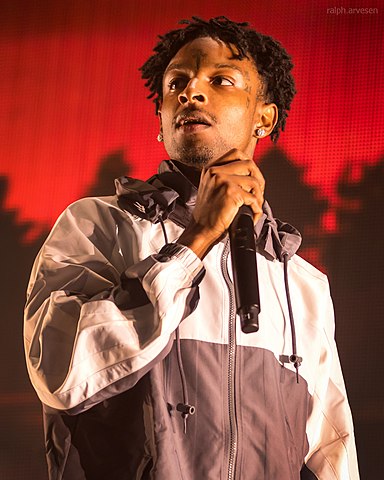
On Feb. 3, popular rapper 21 Savage, born Shayaa Bin Abraham-Johnson, was stopped while driving in Atlanta and arrested by Immigration and Customs Enforcement agents. An ICE official would later specify that Abraham-Johnson had, like millions of people in the past few decades, originally been brought to the United States as a child, overstayed his Visa and found himself, through no fault of his own, without legal status. The arrest was a shock to a lot of people, and social media took off after an ICE agent said that Abraham-Johnson’s public persona, which involved being raised in some of Georgia’s toughest neighborhoods, was completely false – he had moved to the U.S. as a teenager. Statements from Abraham-Johnson’s side contradict this, saying that he spent most of his childhood in the U.S.
“Abraham-Joseph arrived legally in the U.S. at the age of 7,” his legal team claimed. “… [He] remained in the country until 2005, when he left for a one-month visit back to the U.K. He then returned to the U.S. under a H-4 visa in July 2005 and his legal status expired in 2006.”
Many have been bothered by ICE’s actions against immigrants, especially since the current administration took office. This, in combination with the rapper’s fame, brought a lot of attention to the arrest. The reaction across social media, though, was concerning. Rather than having a serious conversation about the nature of ICE’s actions (a precedent that 21 Savage set literally days before he was arrested, when he criticized ICE during a performance on The Tonight Show) Twitter was set ablaze with memes surrounding the idea that 21 Savage had been hiding his British past from all of us. Even on Vanderbilt’s own meme page, when it was announced that 21 would headline Rites, a meme satirizing his immigration status garnered over 1,000 likes/reactions.
Memes making light of celebrities are commonplace, but the problem is that the memes ignored the millions of people actually suffering
I am all for memes in the right place and time. But we must ask the question: have memes surpassed their intended purpose? Yes, when looking back on his detainment, Abraham-Johnson commented that some of the memes were funny. But are we making too light of a crucially important issue?
Abraham-Johnson’s international celebrity status and reputation as a frequent philanthropist will likely serve to help him in his upcoming deportation trial, making it a bit easier to “memify” the situation. A similar example concerns the memes relating to Kim Kardashian’s experience being robbed in Paris in 2016. Her massive wealth made recovering from a robbery easier than it would for most, but it doesn’t make the robbery less of a serious issue. Memes making light of celebrities are commonplace, but the problem is that the memes ignored the millions of people actually suffering, battling ICE and other government agencies without the same resources people like Abraham-Johnson have accrued.
U.S. immigration policy is an extremely polarizing subject as of late, and while I am not taking a stance on specific policy in this piece, it is clear that memes are not a productive way to discuss such a serious issue. Meme culture has taken the focus away from the plethora of deportation cases happening around our country.
It is much easier to make jokes than lobby for change, but it is what we have to do.
Relatedly, it has also stymied a conversation about the harassment of artists over their criticism of the government in their performances and in their music. The idea that 21 Savage is a gangster persona created specifically for a rap career by a British teenager is exciting (as is any celebrity exposé), but the timing of this could not be any more suspicious. Part of meme culture is that the issues typically die with the meme. So, a celebrity utilizes his platform to criticize a government agency, gets arrested by said agency a couple days later and the only thing we have discussed is the possibility that he might not be who claims to be. Are we ok with the possibility of our government taking retaliatory action against our artists for their views, which often mirror our own? I would like to think that we could use social media not only to communicate, lift artists up, and offer them a platform, but also support them when they speak out on important issues on our behalf.
Social media and meme culture most definitely have a place in raising awareness for real causes, but it is also our responsibility to make sure those serious conversations happen. It is much easier to make jokes than lobby for change, but it is what we have to do.
Now, 21 Savage will be gracing the Rites of Spring stage this year – legit the day after his deportation trial! Hopefully, we can all take a step back from the memes and begin discussions about the serious aspects of his arrest and what it means for minorities and artists all over the country. Without serious conversation, these problems will be minimized in the public consciousness.


